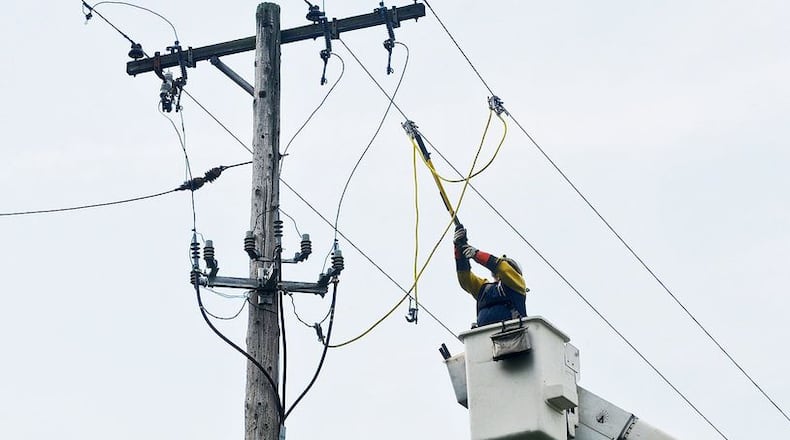While the study is in its early stages, “the goal of the proposed aggregation plan would be a competitive rate utilizing the value of bulk buying not a guaranteed savings from what residents are currently paying,” Schwieterman said in an email.
Centerville City Council has had “very limited discussion” on the issue in recent weeks, one official said. But the MVCC’s eight members are set to discuss the issue next week, according to Miamisburg and Oakwood city managers.
With energy, “I think a lot of people are concerned because the markets are so volatile,” said Jay Weiskircher, executive director of the council.
“I know some communities are hearing from residents who are inquiring about aggregation and whether their communities are involved in any programs,” he added.
MVCC members also include Germantown, Moraine, Springboro and West Carrollton.
“We are looking into it with other cities in this region to see if we can utilize larger buying power to create a better rate,” Schwieterman told Kettering officials recently.
Schwieterman stressed what is being explored is “not a short-term solution” and will likely take “a few months — if not longer — to create an aggregation program and make it available for our community.”
Weiskircher expressed similar thoughts, noting “it’s not something you can set up overnight.”
The price of electricity has risen nationwide and inflation, natural gas cost increases, supply chain problems and other issues — like growing post-pandemic demand for power — are complicating factors, officials have said.
As of June 1, AES Ohio’s price became 10.91 cents per kWh (kilowatt-hour), up from its “standard offer” price of 4.805 cents.
A kilowatt-hour is how much energy you need to run a 1,000-watt appliance for an hour. A 100-watt bulb takes 10 hours to use a kilowatt-hour of energy. A 2,000-watt appliance takes 30 minutes.
Schwieterman has said he also met with representatives of the Sustainable Ohio Public Energy Council.
Last year, Dayton joined that council, a nonprofit group of governments that works to secure fixed-term electric rates.
About the Author

